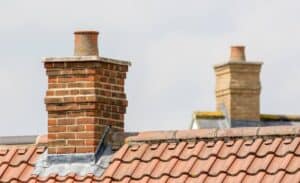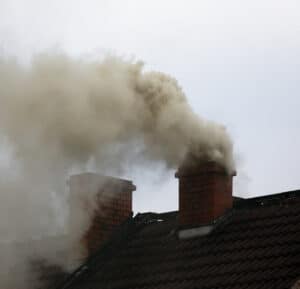What is Chimney?
 Although most residential houses have chimneys, many people are unaware of exactly how they work, what maintenance they require, or what modifications can be made to them. If your property has a chimney and you aren’t sure how to care for it or what your options are, this can make it difficult to keep your home safe and retain its value. By finding out more about what a chimney is, how it works, and what can go wrong, you can ensure that your property remains safe, functional and in great condition.
Although most residential houses have chimneys, many people are unaware of exactly how they work, what maintenance they require, or what modifications can be made to them. If your property has a chimney and you aren’t sure how to care for it or what your options are, this can make it difficult to keep your home safe and retain its value. By finding out more about what a chimney is, how it works, and what can go wrong, you can ensure that your property remains safe, functional and in great condition.
How Does a Chimney Work?
 If a property has a functional fireplace, smoke and gases emitted from the fire escape the property via the chimney breast. This is essentially a channel that runs from the fireplace out through the roof, which facilitates ventilation. As well as allowing smoke and gases to leave the interior of the property, a chimney also draws fresh air into the fireplace, which allows a fire to burn at a hotter temperature.
If a property has a functional fireplace, smoke and gases emitted from the fire escape the property via the chimney breast. This is essentially a channel that runs from the fireplace out through the roof, which facilitates ventilation. As well as allowing smoke and gases to leave the interior of the property, a chimney also draws fresh air into the fireplace, which allows a fire to burn at a hotter temperature.
Within the chimney breast is one or more flues. It is through the flue that smoke and gases actually travel. In most instances, each fireplace or gas-producing appliance, such as a traditional stove, will have its own flue within the chimney. Inside each flue, there is usually a liner that helps to improve its performance and increase safety.
When you look at your property from the outside, you’ll see the chimney stack sitting atop the roof. This is the top of the chimney and, when a fire is in use, you’ll see smoke being emitted from it.
Is a Chimney Necessary?
If you have a functional fireplace or any other equipment that produces carbon monoxide or gases, you’ll need a chimney to ensure these dangerous toxins are able to exit your property. However, if you don’t use your fireplaces and you don’t have any other gas-producing appliances, a chimney is not technically necessary.
Although a chimney can be removed from a property, the chimney breast usually plays an important structural role. This means that removing it can be time-consuming, disruptive, and costly. Instead, you can block off a chimney, providing you don’t need to use it.
Does a Chimney Require Maintenance?
 Yes. A chimney requires regular maintenance, particularly if you have a functional fireplace. If you burn wood or coal, for example, a chimney should be swept at least twice per year. In addition to this, even unused chimneys should be inspected so that any signs of damage to the brickwork can be repaired in a timely manner.
Yes. A chimney requires regular maintenance, particularly if you have a functional fireplace. If you burn wood or coal, for example, a chimney should be swept at least twice per year. In addition to this, even unused chimneys should be inspected so that any signs of damage to the brickwork can be repaired in a timely manner.
